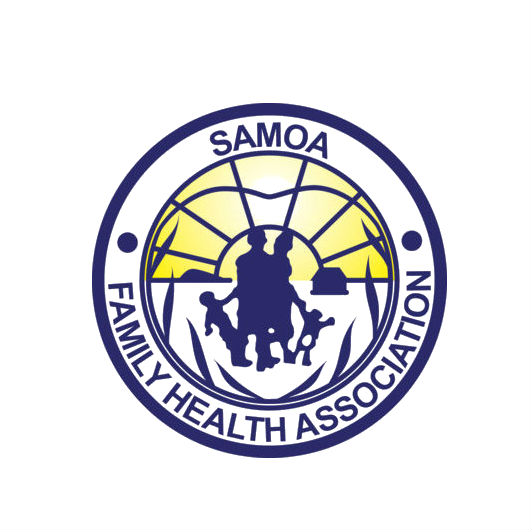

| 31 March 2016
Samoa Family Health Association
As the leading sexual and reproductive health rights (SRHR) service provider in Samoa, the Samoa Family Health Association (SFHA) delivers family planning and reproductive health services through three static clinics (two in Upolu and one in Savaii), and two mobile units (one in both islands) which visit rural areas and other outer islands three times a week to provide educational and contraceptive services to vulnerable communities. The association as the leading and champion of SRHR within the country has been very active for the past years also acting as an advisor on SRHR to the Government of Samoa. Our main strategic focus are to Champion Rights, to Empower Communities, to Serve the People, and to Unite and Perform. Primary objectives: to galvanize and secure legislative policy and practice improvements; to encourage young people to access CSE education and information; to deliver rights based SRH services including for family planning; to enhance operational effectiveness and grow our volunteer and activist supporter base. We work closely with other NGOs and private sector in the provision of services, creating an enabling environment for the association to provide SRHR services both awareness and clinically to workplaces. SFHA is a major stakeholder of the Health Sector, and we work in close partnerships with other government ministries like the Ministry of Health, Ministry of Education, Sports & Culture, Ministry of Police, Ministry of Natural resources & Environment, National Human Rights Institute (Office of the Ombudsman), and others in the provision of services both awareness and clinically to the community at large. We also collaborate closely with the Disaster Management Office in the provision of SRH and FP humanitarian services throughout the country, particularly for vulnerable communities.

| 31 March 2016
Family Planning Association of Nepal
Established in 1959. the Family Planning Association of Nepal (FPAN) is Nepal's first national family planning service delivery and advocacy organization. It is a major collaborator of the Government of Nepal's national sexual and reproductive health (SRH) program, contributing a greater percentage of all SRH services in Nepal annually. FPAN serves Nepalese people in 44 districts, focusing on the poor, marginalized, socially excluded and underserved (PMSEU) populations, which include female sex workers, people living with HIV (PLHIV), LGBTIQ people, injecting drug users, men who have sex with men (MSM), migrant workers, people with disabilities (PWD), survivors of gender-based violence (GBV), urban slum dweller and people affected by disaster and crisis. The mission of FPAN is to "champion a volunteer movement for increased provision of SRHR to all, particularly to those most at risk, marginalized, and under-served". The planned outcomes set by FPAN for the strategic planning period (2016-2022) include: Nepal Government respects, protects and fulfil sexual and reproductive rights and gender equality; Nepalese people empowered to act freely on their sexual and reproductive health and rights; a high quality integrated sexual and reproductive health services delivered; and a high performing, accountable and strong FPAN. The success of FPAN is due to its extensive and diverse network of service delivery points, as well as its expertly trained staff and volunteers who provide services in areas where they would otherwise be unavailable. FPAN provides an Integrated Package of Essential Services (IPES), which includes sexuality counselling, contraception, including emergency contraception, safe abortion, STIS/RTIs, HIV & AIDS, obstetrics, gynecological and sexual & gender-based violence services. These services are provided across 974 service delivery points (including 270 clinical SDPs, 22 family health clinics, 56 community health clinics, 75 associate clinics, 117 mobile teams, and 794 non-clinical service delivery points). FPAN provides approximately four million SRH services each year across its service delivery points, with family planning accounting for 40%, STIs/RTIs for 14%, gynaecological services for 12%, HIV services for 10%, and other services accounting for the remaining 24%. FPAN has eight clinical training centres that are connected to its family health clinics, which provide full range of family planning and reproductive health services. The training centres are accredited by the National Health Training Centre, (MoHP). These centres provide a variety of family planning and sexual and reproductive health training to health care providers from FPAN, government, and non-governmental organizations (NGO) health facilities.







